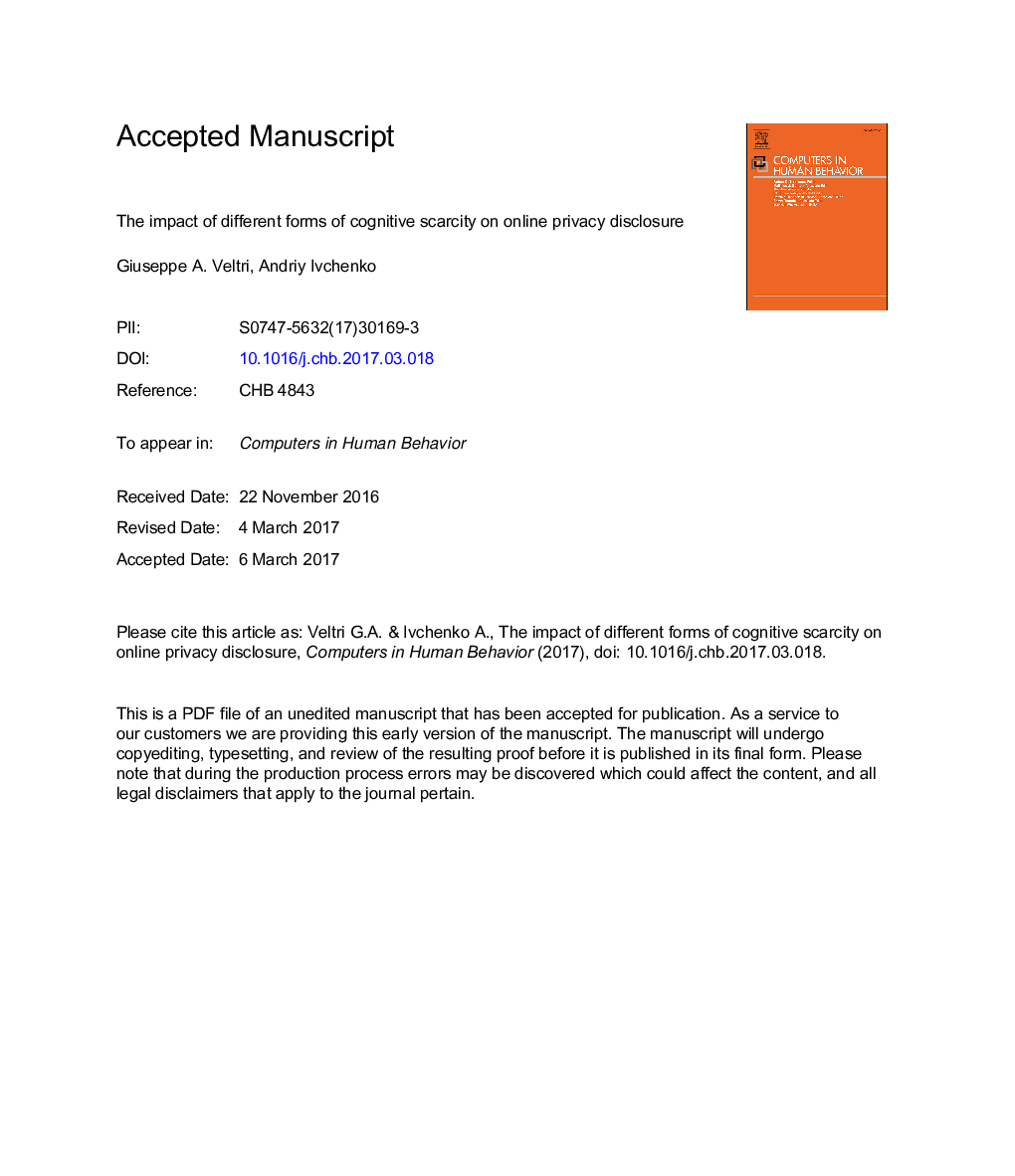| Article ID | Journal | Published Year | Pages | File Type |
|---|---|---|---|---|
| 4937175 | Computers in Human Behavior | 2017 | 30 Pages |
Abstract
The way in which people manage information disclosure contributes to one of the biggest challenges of the information age - online privacy. The current study sheds a light on the privacy paradox, a gap between attitudes and behaviour, by exploring the role of cognitive scarcity in privacy disclosure behaviour. Using a large sample of the UK online general population (NÂ =Â 969), we conducted a Randomised Controlled Trial experiment to test the effect of two forms of induced cognitive scarcity: ego depletion and working memory load, on information disclosure levels. Results indicate a significant effect of both forms of scarcity on information disclosure in the direction of increasing the latter, even in the context of a generalised high disclosure. Findings are discussed in light of the privacy paradox, future research, possible remedies and interventions.
Related Topics
Physical Sciences and Engineering
Computer Science
Computer Science Applications
Authors
Giuseppe A. Veltri, Andriy Ivchenko,
